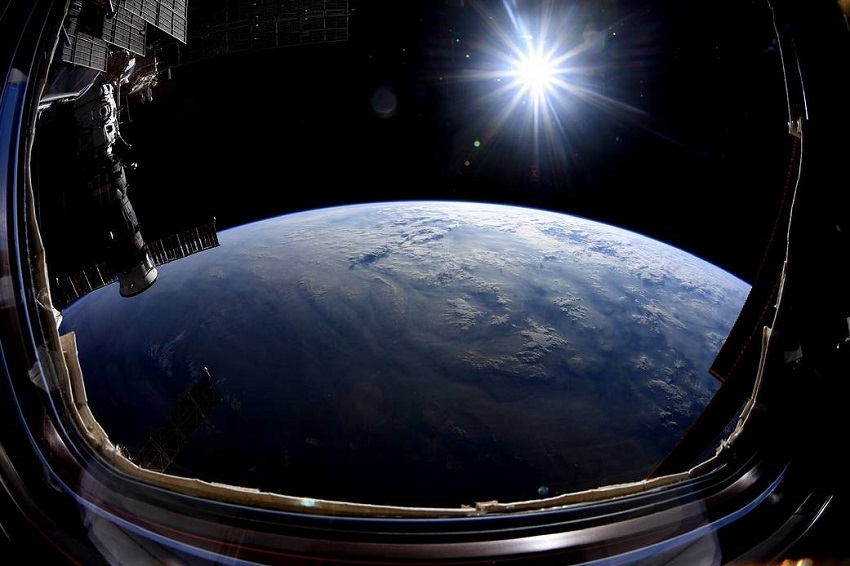by Daniel Brouse
February 22, 2024

Human-induced climate change serves as a dynamic and intricate component within an unordered system, guided by chaos theory. This suggests that global warming is undergoing exponential acceleration in a complex manner. The pace at which climate change is accelerating can be described as rapid, as evident in the intensity, duration, and likelihood of climate disasters. Drawing insights from the 2023 Canada wildfires, the World Weather Attribution Organization reported, “Climate change made the cumulative severity of Quebec’s 2023 fire season to the end of July around 50% more intense, and seasons of this severity at least seven times more likely to occur.”
Key Findings: Extreme weather and climate-related disasters have become 50% more intense and 7 times more likely.
In the 20th century, Earth’s surface temperature averaged 13.9℃. However, in the initial weeks of July 2023, the average temperature surged to 17℃. Human activities have propelled global temperatures more than 3℃ for parts of the year, with the entire period from February 2023 to February 2024 registering 1.5℃ above pre-industrial levels. A rise of 1.5 degrees already compromises human well-being, making much of the Earth uninhabitable.
As of 2024, humanity has surpassed seven critical tipping points, including Mountain Glacier Loss, Greenland Ice Sheet Collapse, Antarctic Ice Sheet Collapse, AMOC (Atlantic Meridional Overturning Circulation) Collapse, Amazon Rainforest Dieback, Coral Reef Die-Off, and Northern Permafrost Collapse. Crossing these tipping points triggers self-sustaining feedback loops independent of human activity. While the exact carbon stored in nature remains uncertain, an assumption could be made that temperatures might surge from 3 to 6 degrees above pre-industrial levels. Thriving beyond a 1.5-degree rise becomes impossible for humans. If an additional 3 degrees Celsius is added, the temperature and humidity would approach a wet-bulb temperature unsuitable for human life.
In a significant update from May 2024, scientists determined through tree ring analysis that the average temperature increase in 2023 reached 2.07 degrees Celsius, further underscoring the escalating pace of climate change and its profound impact on global ecosystems.
June 6, 2024 -- Carbon dioxide is accumulating in the atmosphere faster than ever -- accelerating on a steep rise to levels far above any experienced during human existence, scientists from NOAA and the Scripps Institution of Oceanography at the University of California San Diego announced today. "Over the past year, we’ve experienced the hottest year on record, the hottest ocean temperatures on record and a seemingly endless string of heat waves, droughts, floods, wildfires and storms," said NOAA Administrator Rick Spinrad, Ph.D. "Now we are finding that atmospheric CO2 levels are increasing faster than ever. We must recognize that these are clear signals of the damage carbon dioxide pollution is doing to the climate system, and take rapid action to cut fossil fuel use as quickly as we can."
What Can I Do?
There exist numerous actions individuals can take to contribute to saving the planet. Each person bears the responsibility to minimize pollution, discontinue the use of fossil fuels, reduce consumption, and foster a culture of love and care. The Butterfly Effect illustrates that a small change in one area can lead to significant alterations in conditions anywhere on the globe. Hence, the frequently heard statement that a fluttering butterfly in China can cause a hurricane in the Atlantic. Be a butterfly and influence the world.
Educate
Climate Change and Science Music With Lyrics and Educational Materials featuring the #1 Downloads
Violent Rain
and Be a Butterfly (The Butterfly Effect)
The Age of Loss and Damage Brouse (2023)
How is All Real Estate at Risk From Climate Change? Brouse and Mukherjee (2024)
Toppled Tipping Points: The Domino Effect Brouse and Mukherjee (2023)
Tipping Cascades, Social-Ecological Systems, and the Hottest Year in History Brouse (2024)
Climate Change: How Long Is "Ever"? Brouse (2023)
Climate Change: The End of Times Brouse and Mukherjee (2023)
The Reign of Violent Rain Brouse and Mukherjee (2023-2024)
How Do Pollution and Climate Change Kill People? Brouse (2024)
Climate Change: Rate of Acceleration Brouse and Mukherjee (2023)
Tree Extinction Due to Human Induced Environmental Stress Mukherjee and Brouse (2005)
Atmospheric Rivers Mukherjee and Brouse (2022-2023)
Sea-level Rise: Greenland and the Collapse of the East Antarctic Ice Sheet Mukherjee and Brouse (2022 and 2023)
Sea Level Rise: Then and Now Mukherjee and Brouse (2023)